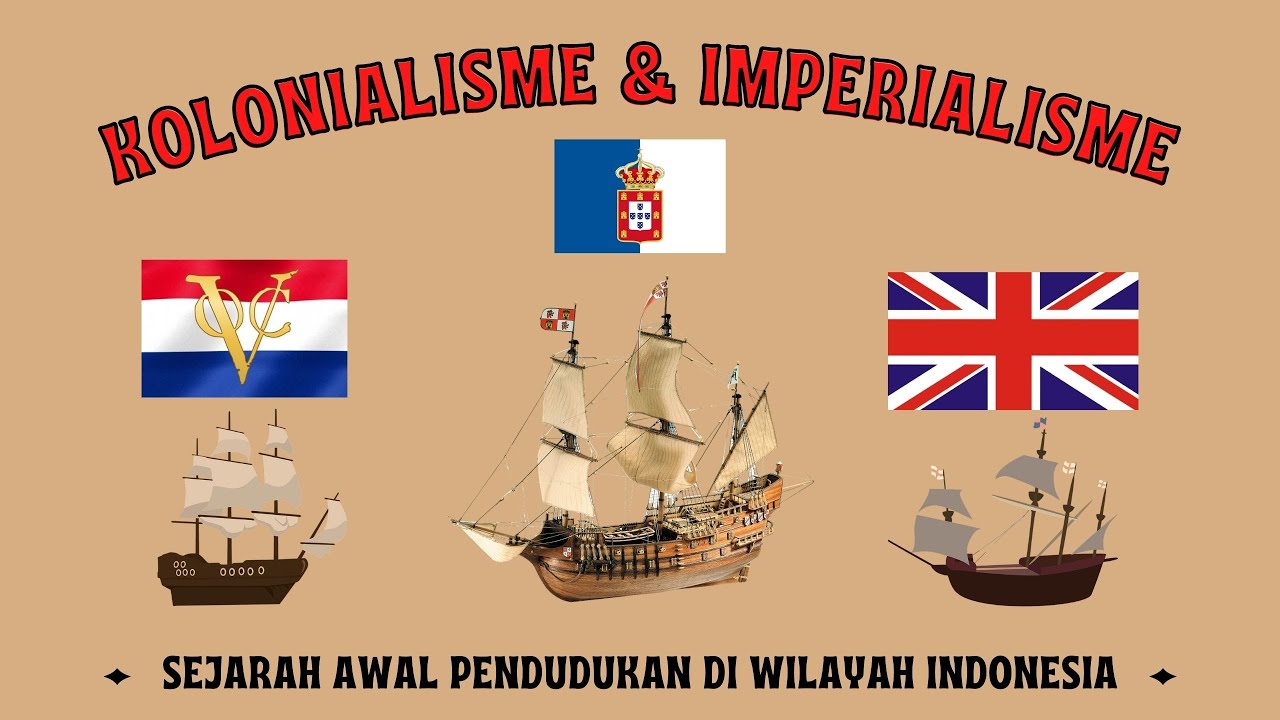GRANDES NAVEGAÇÕES - Para o 7º ANO
Summary
TLDRThe video narrates the historic journey of European explorations during the 15th century. It highlights the fear of the Atlantic Ocean, the desire for new markets, and access to valuable spices that pushed Portugal to pioneer sea navigation. The script follows key moments, including Vasco da Gama's successful expedition to India in 1498, Cabral's accidental discovery of Brazil in 1500, and Columbus' journey to the Americas. The narrative touches on the race between European nations, the Treaty of Tordesillas, and the division of newly discovered lands between Portugal and Spain. This adventure shaped the global dynamics of trade and colonization.
Takeaways
- 😀 Europeans feared the Atlantic Ocean in the 15th century, believing it to be full of dangerous sea monsters and mysteries.
- 😀 Economic motivations, such as the need for new markets, precious metals, and direct access to spices, drove European explorations.
- 😀 Spices were highly valued during the 15th century for their culinary, preservative, and medicinal properties.
- 😀 Portugal was the pioneer in maritime exploration, seeking new routes to India after the traditional trade routes became monopolized.
- 😀 Vasco da Gama’s successful expedition to India in 1498 resulted in a massive profit, making it a major milestone in Portuguese exploration.
- 😀 In 1500, Pedro Álvares Cabral accidentally discovered Brazil during a journey to India, marking the beginning of Portuguese colonization there.
- 😀 Columbus, funded by Spain, proposed a westward route to the Indies, leading to his accidental discovery of the Americas in 1492.
- 😀 Columbus’s expedition mistakenly identified the Caribbean as India, leading to the misnomer of 'Indians' for the indigenous peoples.
- 😀 The term 'America' emerged after Amerigo Vespucci’s recognition that the lands Columbus discovered were not part of Asia, but a new continent.
- 😀 A race between Spain and Portugal for control of newly discovered lands led to the Treaty of Tordesillas in 1494, dividing the world into two spheres of influence.
- 😀 The Treaty of Tordesillas established an imaginary line, with Portugal controlling lands east of it and Spain those to the west, impacting global exploration and colonization.
Q & A
Why were Europeans in the 15th century afraid of the Atlantic Ocean?
-Europeans in the 15th century feared the Atlantic Ocean because they believed it was a dark and mysterious sea, filled with sea serpents and giant monsters that could attack ships.
What was driving Europeans to sail across the Atlantic during the 15th century?
-Europeans were motivated by the need for new consumer markets, the desire for precious metals to mint coins, and the search for a new route to the Indies, which was a valuable source of spices.
What role did spices play in 15th-century European society?
-Spices were highly valued for seasoning and preserving meat, as well as for their medicinal properties. Some spices were luxury items, like Chinese porcelain and Persian carpets, and were sought after by Europeans.
Why did Portugal seek to directly access spices from the Indies?
-Portugal sought direct access to the Indies to bypass the monopolized, expensive trade routes controlled by Arab and Italian merchants, allowing them to make greater profits.
What was the 'African periplus' in the context of Portuguese navigation?
-The 'African periplus' refers to the Portuguese expeditions along the coast of Africa, with the goal of finding a sea route to the Indies.
What was the significance of Vasco da Gama's expedition in 1498?
-Vasco da Gama's successful expedition to the Indies in 1498 marked a major achievement for Portugal, bringing in a profit of six thousand percent from the spices acquired, solidifying the importance of direct sea trade routes.
How did the discovery of Brazil happen in 1500?
-Pedro Álvares Cabral's expedition to the Indies deviated from its route and instead landed on the Brazilian coast on April 22, 1500, marking the 'discovery' of Brazil, though it is debated whether it should be called a discovery or an invasion.
Why did Christopher Columbus's expedition differ from the Portuguese approach?
-Instead of following the Portuguese route around Africa, Columbus proposed sailing west to reach the Indies, believing that sailing around the globe would be faster. He was financed by Spain after Portugal rejected his plan.
What mistake did Columbus make when he reached the Americas?
-Columbus mistakenly believed he had reached the Indies when, in fact, he had arrived in Central America. This confusion led to the inhabitants being called 'Indians'.
How did the Treaty of Tordesillas divide the world between Portugal and Spain?
-The Treaty of Tordesillas, signed in 1494, drew an imaginary line 370 leagues west of the Cape Verde Islands. Territories to the east of the line were designated for Portugal, while those to the west were assigned to Spain, including what would later become Brazil.
Outlines

Esta sección está disponible solo para usuarios con suscripción. Por favor, mejora tu plan para acceder a esta parte.
Mejorar ahoraMindmap

Esta sección está disponible solo para usuarios con suscripción. Por favor, mejora tu plan para acceder a esta parte.
Mejorar ahoraKeywords

Esta sección está disponible solo para usuarios con suscripción. Por favor, mejora tu plan para acceder a esta parte.
Mejorar ahoraHighlights

Esta sección está disponible solo para usuarios con suscripción. Por favor, mejora tu plan para acceder a esta parte.
Mejorar ahoraTranscripts

Esta sección está disponible solo para usuarios con suscripción. Por favor, mejora tu plan para acceder a esta parte.
Mejorar ahoraVer Más Videos Relacionados

Gold, Glory, dan Gospel : APA ITU ?

SEJARAH KOLONIALISME & IMPERIALISME DI INDONESIA

Penjelajahan Samudra Bangsa Eropa [Pertemuan awal Bangsa Indonesia dengan Bangsa Eropa]

KETIKA BUMI HANYA MILIK PORTUGIS DAN SPANYOL || PERJANJIAN TORDESILLAS DAN SARAGOSA

Sejarah Senjata Api Kerajaan Nusantara

KEDATANGAN BANGSA EROPA KE INDONESIA | KEDATANGAN BANGSA BARAT
5.0 / 5 (0 votes)
